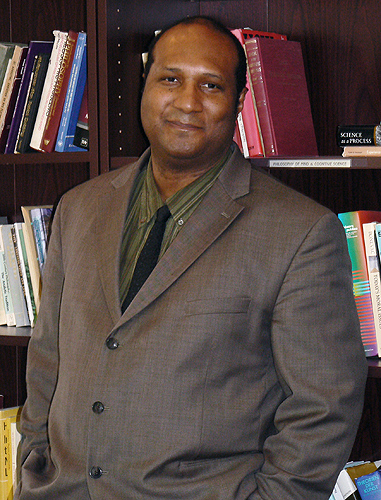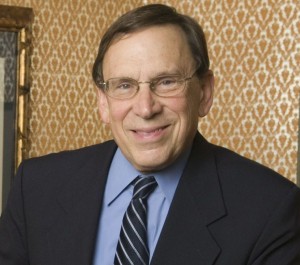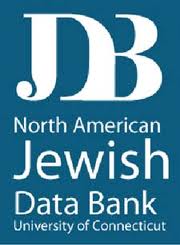How many of America’s 5.2 million Jews are married to non-Jews? And how many of this nation’s Jewish adults attend religious services monthly?
Data that provide answers to such questions concerning the social and demographic characteristics of the American Jewish community are now available at an interactive website administered by UConn’s Center for Judaic Studies and Contemporary Life, in collaboration with the Roper Center for Public Opinion Research and supported by United Jewish Communities (UJC). The website, www.jewishdatabank.org, is available to all for non-commercial use.
“The website contains the most advanced database of social scientific studies of North American Jewry and allows researchers to better understand the size and composition of different Jewish populations in the United States,” says Arnold Dashefsky, Professor of Sociology and Director of the Center for Judaic Studies and Contemporary Jewish Life. “Individuals can now download data from the archive over the web and conduct their own analysis of it.”
The website is the result of a new partnership between the Center for Judaic Studies and Contemporary Jewish Life and UJC, a New York-based philanthropic organization representing 155 Jewish community federations and 400 independent Jewish communities across North America.
Over two decades, the UJC has amassed the largest archive of social scientific and demographic studies of North American Jewry in an effort to promote understanding of changes within the Jewish Community. This archive, the Mandell L. Berman Institute — North American Jewish Data Bank, is now the principal repository of social scientific and demographic studies of the North American Jewish community. Included among its holdings are national surveys of the U.S. Jewish populations in 1971 and 1990, more than 90 local Jewish community studies from the 1960s to the present, and the National Jewish Population Survey of 2000-2001 reflecting the most recently collected data as well as studies of Canadian Jewry.
The archive, established in 1986 by one of the UJC’s predecessor organizations, the Council of Jewish Federations, originally was based at the City Unversity of New York’s Center for Jewish Studies. In 2004, the Data Bank was moved from Brandeis University, its second home, to UConn, under the auspices of the Center for Judaic Studies and Contemporary Jewish Life. The UJC is also providing a three-year grant of $240,000 to support promotion of the Data Bank archive.
“We are so pleased to form this new partnership with the University of Connecticut,” says Mandell Berman, founder of the North American Jewish Data Bank. “University scholars, such as Dr. Arnold Dashefsky, will be able to effectively analyze the information housed in the Data Bank.” A critical link is UConn’s Institute for Social Inquiry or Roper Center for Public Opinion Research, the largest and oldest archive of public opinion data in the world. “This collection represents a valuable set of topical data for the broader social science community,” says Lois Timms-Ferrara, Associate Director of the Roper Center. “The attentiveness of the UJC to these data is evident in their decision to archive these studies at the Roper Center, where the application of contemporary archiving standards assure these data will be preserved in perpetuity.”
Berman Jewish DataBank
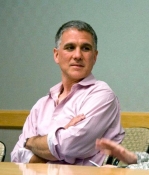
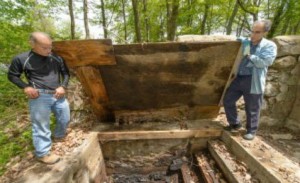 Making waves in the field of Judaic Studies, is a recent discovery by State Archaeologist Nick Bellantoni and Professor Stuart Miller in Old Chesterfield, CT.
Making waves in the field of Judaic Studies, is a recent discovery by State Archaeologist Nick Bellantoni and Professor Stuart Miller in Old Chesterfield, CT. 